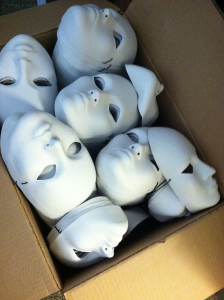
‘The Future of Me’: Technology is transforming traditional idea of the self
Human selfhood isn’t about essence, argues ASU’s Brad Allenby, it’s about information. We are an information-processing species; our personal identities are deeply rooted in what we know and how we know it.
“A self is constructed of information,” writes Allenby in a Future Tense article for Slate magazine. “Consciousness is about managing information, and free will, if it is to mean anything, requires us to have and process information about ourselves, our environment, and the (probable) results of our actions. This makes one point crystal clear: Anything that profoundly changes information will profoundly change us.”
Allenby is a President’s Professor in the School of Sustainable Engineering and the Build Environment, one of ASU’s Ira A. Fulton Schools of Engineering, and a Lincoln Professor of Engineering and Ethics.
He says our information ecosystems are changing dramatically. We have unprecedented access to the world’s accumulated memory and collective knowledge through search engines and digital archives. We outsource more and more of our cognitive labor, from remembering our passwords to parking our cars, to computers and algorithms. Virtual worlds enable us (or force us) to juggle multiple identities that intersect and conflict in fascinating ways: Is eating “virtual pork” acceptable for observant Jews? Is “virtual adultery” without any physical contact grounds for divorce?
“Put another way,” asks Allenby, “how many selves in how many environments and techno-human networks does any individual have the time and attention to maintain?”
Allenby stresses that the critical question is not whether our changing concept of the self in response to fundamental technological change is “good” or “bad.” Further, “the degree to which we can shape this digital technological tsunami may be far less than we naively think.” The challenge is to understand the opportunities and dangers of emerging forms of selfhood that are more fragmented and embedded in technological systems than ever before. Read the full article at Future Tense to learn more about our rapidly transforming selves.
On March 7, ASU will present Emerge: The Carnival of the Future, featuring thrilling performances, interactive displays and immersive experiences that cross and obliterate the traditional boundaries between engineering, arts, sciences and humanities beneath a giant circus tent in Downtown Phoenix.
Allenby’s article is part of a Future Tense series exploring this year’s theme, “The Future of Me.” Learn more and RSVP at emerge.asu.edu.
Future Tense is a collaboration among ASU, the New America Foundation and Slate magazine that explores how emerging technologies affect policy and society.
Written by Joey Eschrich, [email protected]
Center for Science and the Imagination




































